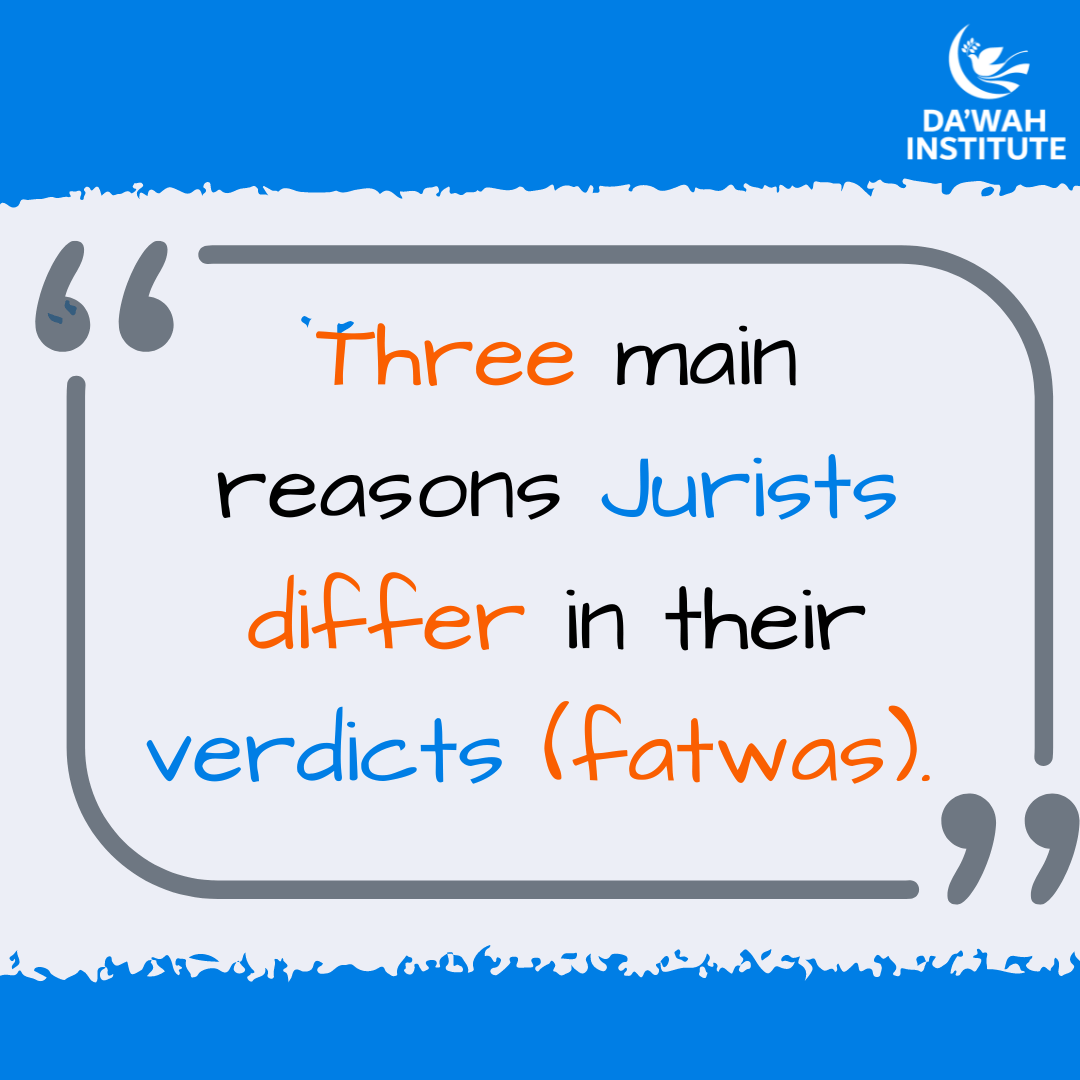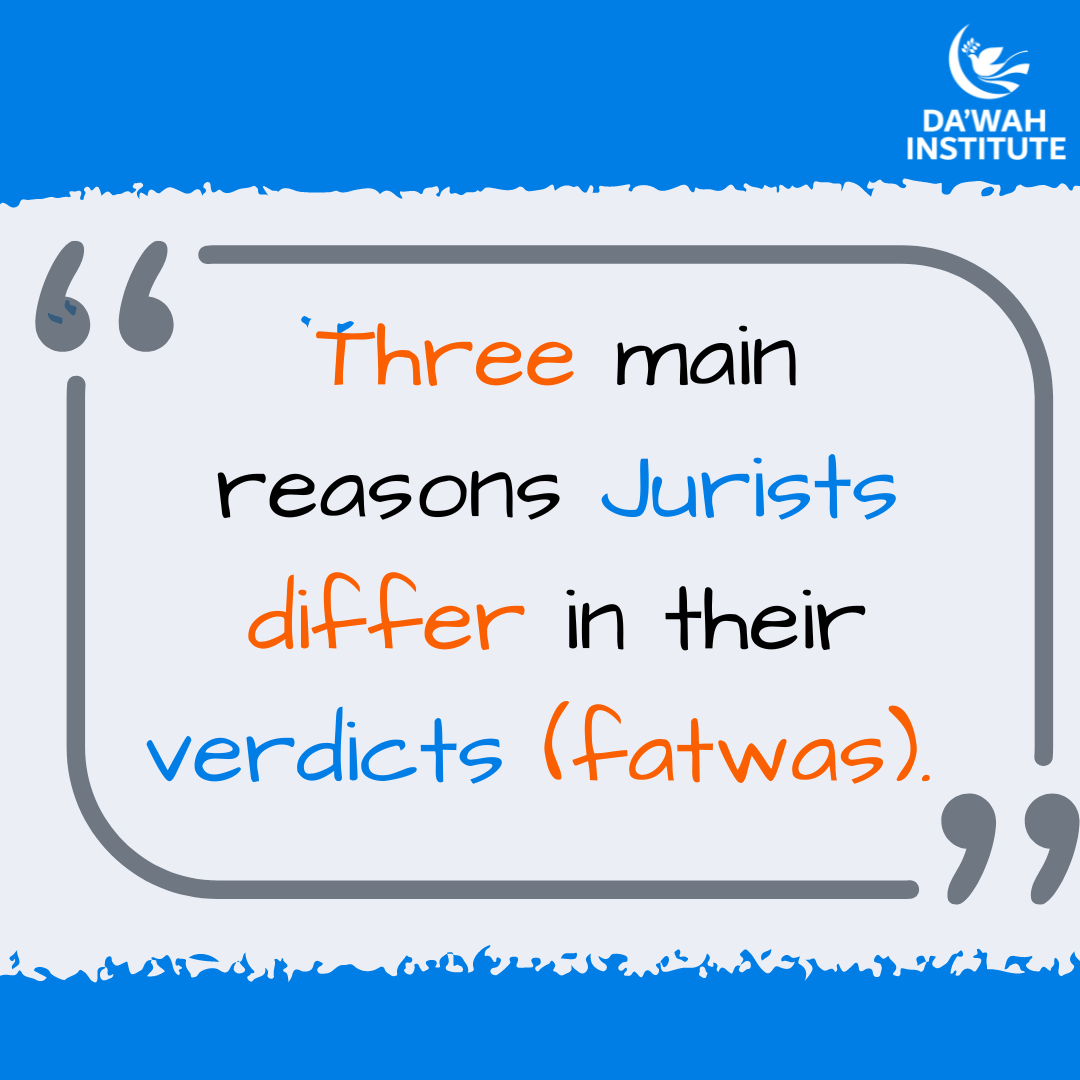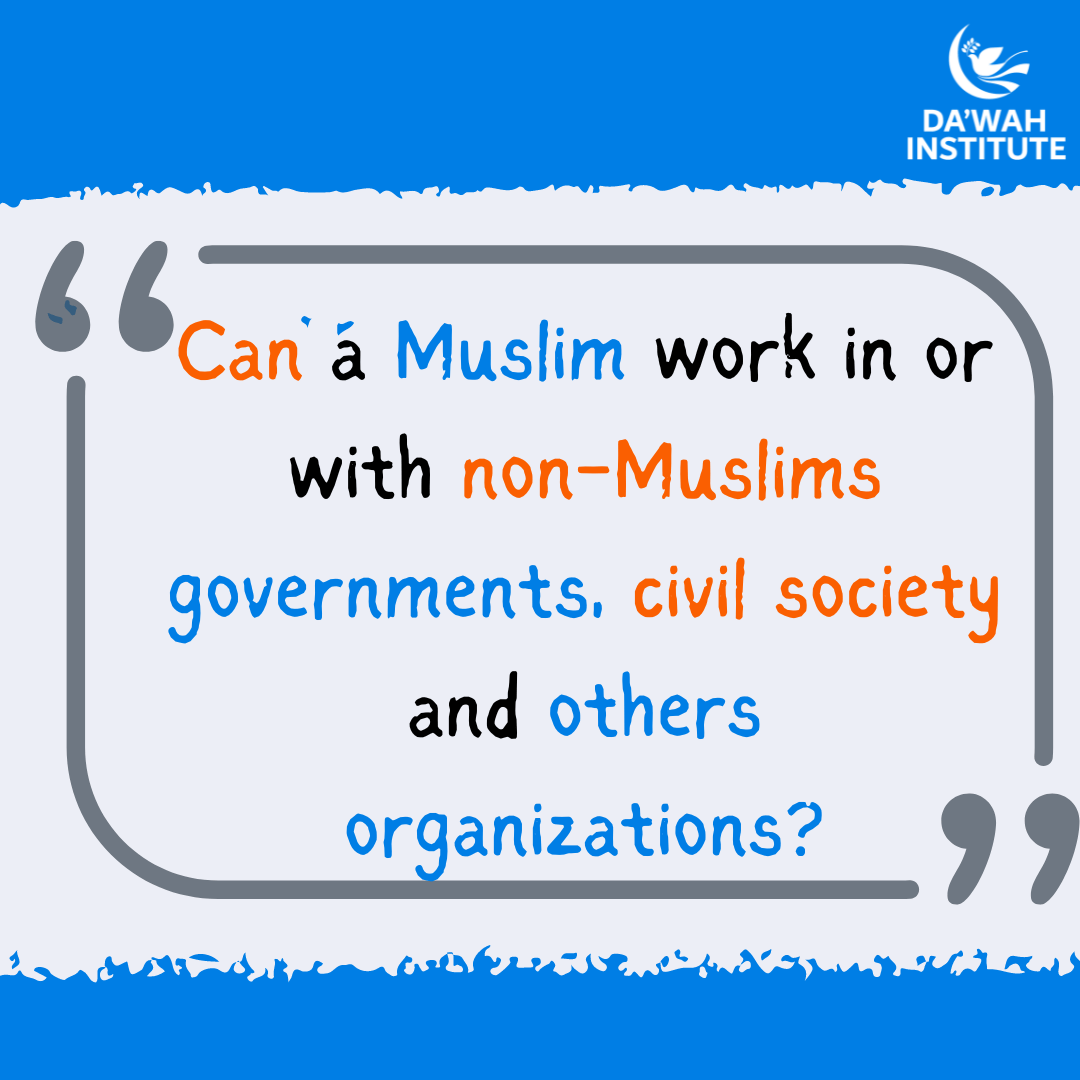
As with specialists or experts in any field in which there is research and development, there will be some major and minor differences between them in their assessment of the evidence, the contexts in which they apply their preferred procedures and methodologies, their assumptions about priorities and the consequences of their decisions. Also attached to the decisions of scholars are those natural human error and biases.
Jurists differ in their verdicts (fatwas) for 3 main reasons which are;
1. The need for juristic reasoning (ijtihad): There is sometimes ‘silence’ or some degree of ambiguity in the text of the Qur’an and Sunnah so scholars embark on ijtihad using their preferred tools or rational approaches.
2. Different contexts: They may differ in their assessment of the environment, context, situation or “reality” (waqi’) in which their verdicts will be applied, as their views may sometimes be affected by their own “cognitive culture” and the influence and limits of their socializing contexts.
3. Resolving or approaching conflicting evidence: There may be apparently or seemingly conflicting evidence (ta’arud) in the texts and the scholars differ on how they should be resolved or approached.




